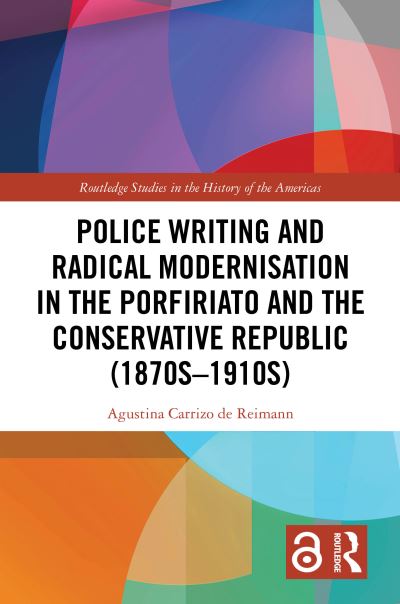
This book explores the process of modernisation during the Porfiriato and the Conservative republic from the perspective of one of its most erratic agents: the urban police.
Taking a pragmalinguistic approach, this book examines police bureaucratic, journalistic, and literary writing practices that flourished in the wake of police professionalisation and in response to the demands of state expansion, urban order, and cultural disciplining. It outlines the precarious state of an institution that had to redefine itself in the face of change, as well as policemen's attempts to enforce and imagine different modes of doing modern estate, society, and culture. Integrating classical sociological theories and perspectives from Latin American police studies with debates on republican modernity, this study argues for an understanding of fin-de-siècle modernisation as a process of radical transformation rather than a maladaptation to Western modernity or blunt heteronomy.
With its comparative approach and theoretically informed analysis, this book will appeal to scholars exploring police formation in Argentina and Mexico, seeking new insights into this key period of national organisation, and questioning the premises underlying the interpretation of modernity. The transdisciplinary approach will be of interest to researchers of writing cultures and postgraduate students wishing to engage critically with the sources of history.
The Introduction of this book is freely available as a downloadable Open Access PDF at http://www.taylorfrancis.com under a Creative Commons [Attribution-Non Commercial-No Derivatives (CC-BY-NC-ND)] 4.0 license.
| ISBN: | 9781032458458 |
| Publication date: | 28th August 2024 |
| Author: | Agustina Carrizo de Reimann |
| Publisher: | Routledge an imprint of Taylor & Francis |
| Format: | Hardback |
| Pagination: | 234 pages |
| Series: | Routledge Studies in the History of the Americas |
| Genres: |
History of the Americas Social and cultural history Literary studies: general History: theory and methods General and world history |